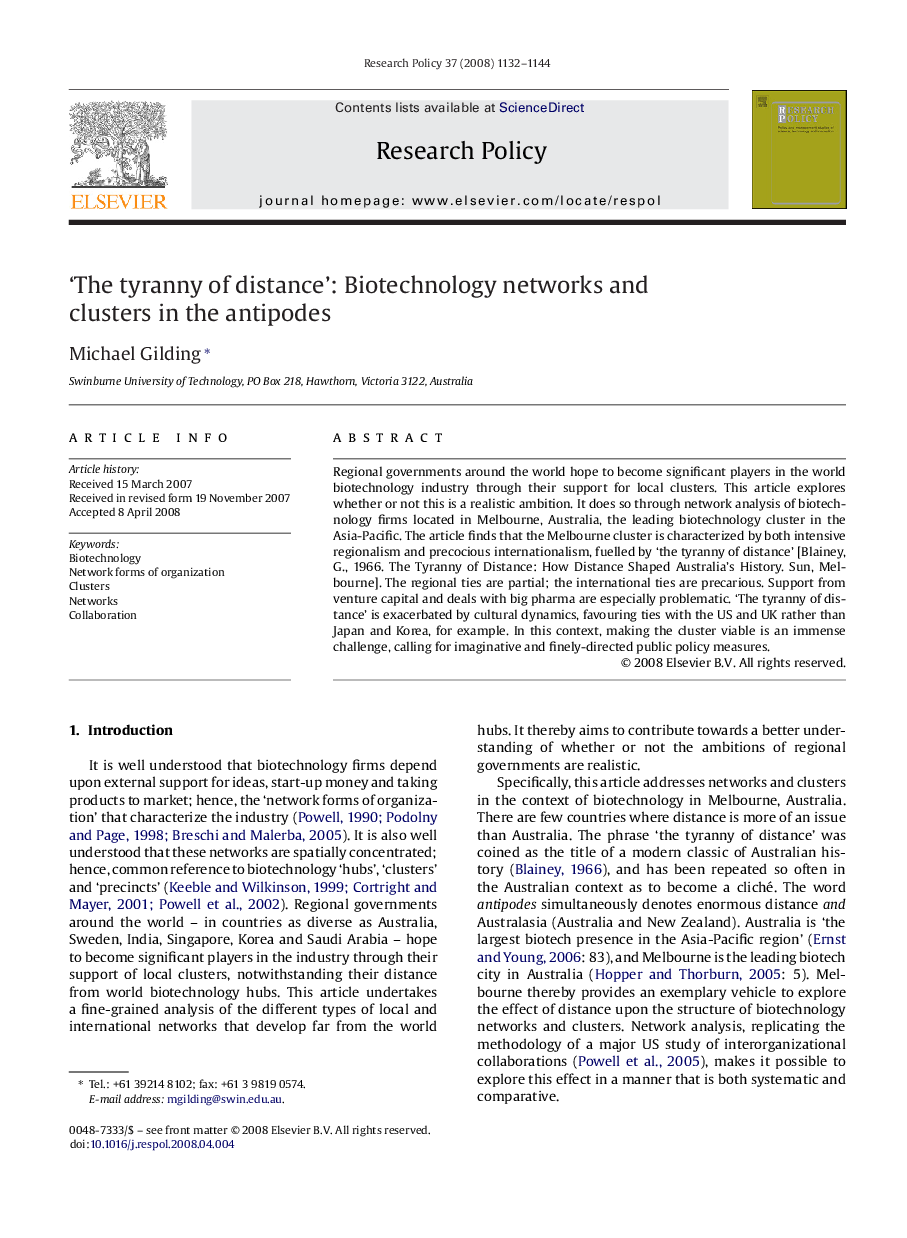| Article ID | Journal | Published Year | Pages | File Type |
|---|---|---|---|---|
| 984263 | Research Policy | 2008 | 13 Pages |
Regional governments around the world hope to become significant players in the world biotechnology industry through their support for local clusters. This article explores whether or not this is a realistic ambition. It does so through network analysis of biotechnology firms located in Melbourne, Australia, the leading biotechnology cluster in the Asia-Pacific. The article finds that the Melbourne cluster is characterized by both intensive regionalism and precocious internationalism, fuelled by ‘the tyranny of distance’ [Blainey, G., 1966. The Tyranny of Distance: How Distance Shaped Australia's History. Sun, Melbourne]. The regional ties are partial; the international ties are precarious. Support from venture capital and deals with big pharma are especially problematic. ‘The tyranny of distance’ is exacerbated by cultural dynamics, favouring ties with the US and UK rather than Japan and Korea, for example. In this context, making the cluster viable is an immense challenge, calling for imaginative and finely-directed public policy measures.
